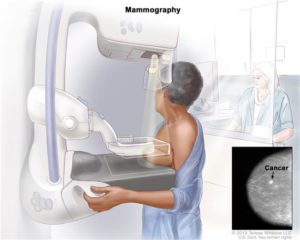Early-stage breast cancer can be cured. Metastatic breast cancer cannot. Therein lies the problem outlined in the articles linked below. If you are diagnosed with DCIS or BC stage one or two you may elect to undergo a lumpectomy, perhaps an aromatase inhibitor and evidence-based, non-toxic therapies to reduce your risk of BC relapse.
But what about chemotherapy for BC diagnoses beyond pre-BC or early stage BC? According to the studies linked and excerpted below, certain BC chemotherapy regimens can cause side effects that increase the risk of BC patients dying from their treatment before they die of their BC.
When my mom was diagnosed with BC at the age of 74 she was treated with both tamoxifen as well as radiation. Mom has lived with pain, intestinal problems and heart damage for years. Clearly, my mom was overtreated.
Have you been diagnosed with BC? What stage? What is your therapy plan? Please scroll down the page, post a question or comment and I will reply to you ASAP.
Importantly, the use of drugs (whether chemotherapy, hormonal therapy or targeted therapy) constitutes systemic therapy for cancer in that they are introduced into the bloodstream and are therefore in principle able to address cancer at any anatomic location in the body. Systemic therapy is often used in conjunction with other modalities that constitute local therapy (i.e. treatments whose efficacy is confined to the anatomic area where they are applied) for cancer such as radiation therapy, surgery or hyperthermia therapy…”
“The American Heart Association issued a stark warning Thursday for women with breast cancer: Lifesaving therapies like chemotherapy and radiation can cause heart failure and other serious cardiac problems, sometimes years after treatment.
The organization said patients and doctors shouldn’t avoid the treatments but instead take steps to prevent or minimize the cardiac risks. It stressed that breast cancer survivors can improve their chances of a long, healthy life by exercising regularly and sticking to a healthy diet…
In many ways, the AHA statement is trying to change the mindset of women diagnosed with breast cancer who consider it the biggest threat to their health. It noted that breast cancer survivors who are 65 and older and were treated for their cancer are more likely to die of cardiovascular problems than breast cancer...
It isn’t unusual, Brawley said, for a breast-cancer patient who underwent chemo years earlier to wake up one day with swollen ankles and shortness of breath, symptoms of congestive heart failure. Yet when such a patient ends up in the hospital, he said, doctors tend to look for signs of a heart attack or pulmonary embolism while overlooking breast cancer treatment as a possible culprit…
Another treatment, radiation, can cause blockages in the heart, but doctors are developing more-targeted radiation to reduce the risks of those problems…”
“Chemo or no chemo? That is the question.
Many oncologists are shunning chemo as risky and ineffective at combating some early-stage breast tumors. Traditionally, the majority of women with invasive breast cancer were treated with some combination of surgery, radiation, and chemotherapy.
A shift to less chemotherapy or none at all, called “de-escalation,” is being hailed by some as revolutionary, following what some doctors see as years of overtreatment with drugs that may have harmed more than helped. Proponents of de-escalation say chemotherapy—the use of chemical agents to treat the disease—should be used only when it appears likely to reduce the chances of the cancer spreading…
The fault lines over chemotherapy are emerging amid a larger debate about over-treatment. Concerns include whether too many antibiotics are being prescribed for ailments that don’t warrant them and whether surgery has been foisted on prostate-cancer patients despite tumors that posed little risk.
Some doctors say the time has come to reassess treatment for breast-cancer patients, too.
“Tens of thousands of women were over-treated, they got surgery they didn’t need, they got radiation they didn’t need, and they got chemotherapy they didn’t need,” says Steven Katz, a professor of medicine at the University of Michigan, and a supporter of de-escalation, an approach that extends beyond chemotherapy to other treatments and other maladies. Chemotherapy, he adds, “knocks the hell out of people and oncologists have gotten more sensitive to the harm” it can cause.
In the past, chemotherapy was widely considered crucial to care. But advances in understanding tumor biology have changed the way many doctors approach chemotherapy. With genomic testing—which looks at genes that affect cancer—a tumor is given a score. A low score means a woman has a good prognosis and won’t benefit from chemotherapy. A higher score suggests a greater risk of recurrence and a need for conservative chemotherapy treatment. The middle scores—which are fueling physicians’ angst—are in a gray zone in terms of data on whether to prescribe chemotherapy…
Ms. Ruopp’s physician, Eric Winer, director of the Breast Cancer Program at Dana-Farber Cancer Institute in Boston, says her case wasn’t a “slam dunk.” Indeed, Dr. Winer says, “there was the very real possibility we would give her chemotherapy.” Patient and doctor discussed the pros and cons and decided: no chemotherapy. Her treatment consisted of the original lumpectomy surgery, radiation, and hormonal therapy. Ms. Ruopp, now 67 years old and a math coach, had hoped to avoid chemo and says she has no misgivings: “You need to trust your oncologist.”
Treatments for those who decide against chemotherapy still include surgery and radiation. Women whose tumors are deemed receptive to the hormone estrogen will get hormone therapy. They can take pills, such as Tamoxifen, which reduces the risk of recurrence...
In an accompanying editorial, the senior author, Dana-Farber’s Dr. Winer, highlighted chemotherapy’s drawbacks. While chemo can have “limited” benefits, he wrote, “toxicity can be formidable” and long-term effects can include leukemia, heart failure, neuropathy, premature menopause, and infertility.
Dr. Winer says he is “not afraid of chemotherapy,” which he prescribes when necessary. The challenge is balancing risks and benefits, he says; for some patients, the risks are substantial but there is little or no benefit. “The medical community has underestimated the side-effects and impact on a woman’s life,” Dr. Winer says, adding that thanks to strides in understanding breast cancer, “we may be able to do less without compromising outcomes.”
Among the chemotherapy drugs commonly used against breast cancer are Cytoxan, Adriamycin, Taxol and Taxotere, which are administered intravenously. In addition to nausea, side-effects can include hair loss and fatigue. The de-escalation debate, Dr. Winer says, isn’t about these drugs, which oncologists generally agree can be effective in certain cases. Rather, the debate is about which patients and their cancers would benefit from such regimens.
Other doctors at major cancer centers worry that a less-aggressive approach poses dangers. The attacks on chemotherapy are scaring patients, they say, and could prevent them from making life-saving decisions. Meanwhile, data on the effect of withholding chemo from more complex breast cancers is still lacking, they argue.
At Memorial Sloan Kettering, Physician-in-Chief José Baselga says that while there is data to support forgoing chemotherapy on certain women with an early-stage disease—and he himself has been prescribing less—these are only “a fraction” of cases. In some cases withholding chemotherapy carries big risks, he warns: “People will die because they will not get the therapy they need…”
De-escalation supporters “have these buzzwords they use quite lightly such as chemotherapy being a poison: Are you kidding me?” he says. “Chemotherapy has saved many, many lives. There is zero question about that.”
The breast cancer field, he says, is littered with once-vaunted treatments that subsequent research proved to be failures. In 1990s breast-cancer patients were given bone marrow transplants and high-intensity chemotherapy—a costly, agonizing treatment that didn’t work. Now the pack is headed in another direction, he says. “One day we are going to transplant everyone and the next we are not going to do chemo,” he says.
A paper published in the New England Journal of Medicine in 2015 gave de-escalation supporters powerful ammunition. In a study of more than 10,000 women, 1,626 who had early-stage breast cancer with no lymph node involvement were given hormonal treatment alone, without chemotherapy.
The study, led by Joseph Sparano, an oncologist, and professor of medicine at Albert Einstein College of Medicine, found that those with a low score also had “very low rates of recurrence at five years with endocrine therapy alone.” In other words, they did fine without chemotherapy.
Oncologists are awaiting the results from the next phase of his research. Dr. Sparano, an oncologist at Montefiore Health System, will be focusing on more ambiguous and complex breast cancer cases with mid-range scores.
The conundrum lies with these “close calls,” says Stanford’s Dr. Kurian. Will de-escalation lead to errors? “I would hate for doctors and patients to say chemotherapy was oversold,” she says. “Some patients don’t need it, but a subset does need it to reduce their chance of death.”
…Dr. Brawley backs de-escalation, saying that with genomics testing, “we are hopefully identifying the women that need the chemotherapy and more importantly the women who don’t need the chemotherapy…”
“There is clearly a need for addressing the toxicities of the treatments,” Dr. Hortobagyi says, “but we have to do it responsibly and on the basis of the highest level of evidence. We can’t simply go out and say, ‘As of tomorrow, I will go and give half the chemo,’ in the absence of evidence that [it] would work.”





